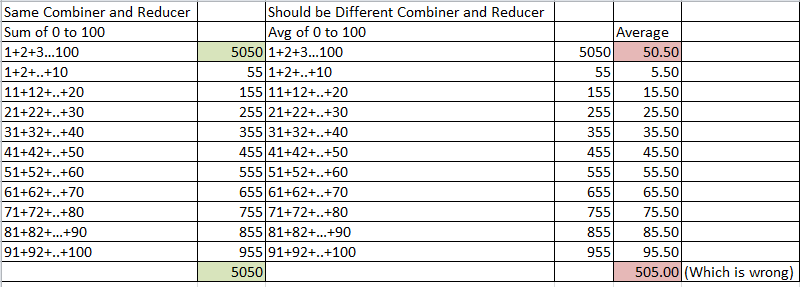- Yes, a combiner can be different to the Reducer, although your Combiner will still be implementing the Reducer interface. Combiners can only be used in specific cases which are going to be job dependent. The Combiner will operate like a Reducer, but only on the subset of the Key/Values output from each Mapper.One constraint that your Combiner will have, unlike a Reducer, is that the input/output key and value types must match the output types of your Mapper.
- The primary goal of combiners is to optimize/minimize the number of key value pairs that will be shuffled across the network between mappers and reducers and thus to save as most bandwidth as possible.
- The thumb rule of combiner is it has to have the same input and output variable types, the reason for this, is combiner use is not guaranteed, it can or can not be used , depending the volume and number of spills.
- The reducer can be used as a combiner when it satisfies this rule i.e. same input and output variable type.
- The other most important rule for combiner is it can only be used when the function you want to apply is both commutative and associative. like adding numbers .But not in case like average(if u r using same code as reducer).Combiners can only be used on the functions that are commutative(a.b = b.a) and associative {a.(b.c) = (a.b).c}
